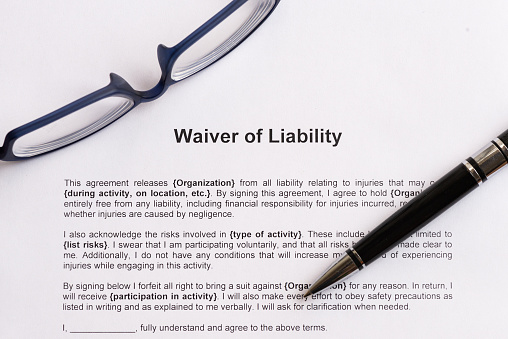Signing a waiver does not necessarily forfeit your right to sue for all types of accidents and injuries.

Summer brings many opportunities for kids to participate in day camps, overnight camps, and other special activities. Unfortunately, kids can get hurt at camp, especially if adventure sports or water sports are involved.
If your child has been hurt while under the supervision of camp staff, you may wonder who is responsible, and whether you can sue the camp to recover compensation for your child’s injuries and suffering. Then, you might remember that you signed a waiver when enrolling your child in camp, and this might make you lose hope of recovering compensation.
But here is what you need to remember:
Summer Camp Liability Waivers Are Not Always Enforceable
Just because you signed a waiver does not mean that waiver is legally binding.
For example, if a waiver states that you will hold the camp blameless for all liability for any injuries your child may incur, a court will almost certainly find this waiver overbroad and unenforceable. You will retain your right to sue in certain situations.
Waivers that make camps immune to liability for all injuries or deaths caused by the reckless or intentional acts of their staff are also generally found by courts to be unenforceable. If a camp counselor or other responsible person knew or should have known that their actions would cause an unjustifiable risk of harm to your child, but they took those actions anyway and your child was injured, you can still file a lawsuit.
So When Do Liability Waivers Protect Camps?
Liability waivers will protect a camp from liability for any injuries or deaths caused by ordinary negligence as opposed to gross negligence. The difference between ordinary and gross negligence hinges on whether the person who allegedly caused the injury acted reasonably or unreasonably.
For example, in a landmark case heard by the California Supreme Court in 2007, it was determined that a camp counselor’s failure to constantly supervise a child known to have epileptic seizures while she was in the pool constituted gross negligence. This gave the child’s mother the right to sue for the child’s wrongful death regardless of the wording of the camp’s waiver. Any reasonable person would have recognized that it was not safe to take their eyes off of the child for even a second, given her risk factors. Had the child not been epileptic, but still suffered a drowning accident in the seconds that the camp counselor looked away from the pool, it is likely that ordinary negligence would have applied.
Need Help Understanding a Liability Waiver?
If you are confused about your right to sue for a personal injury or wrongful death given that you have signed a liability waiver, contact the Law Offices of Fernando D. Vargas at 909-982-0707 for help. We will set up a free initial consultation so you can discuss your potential case with Attorney Vargas.




